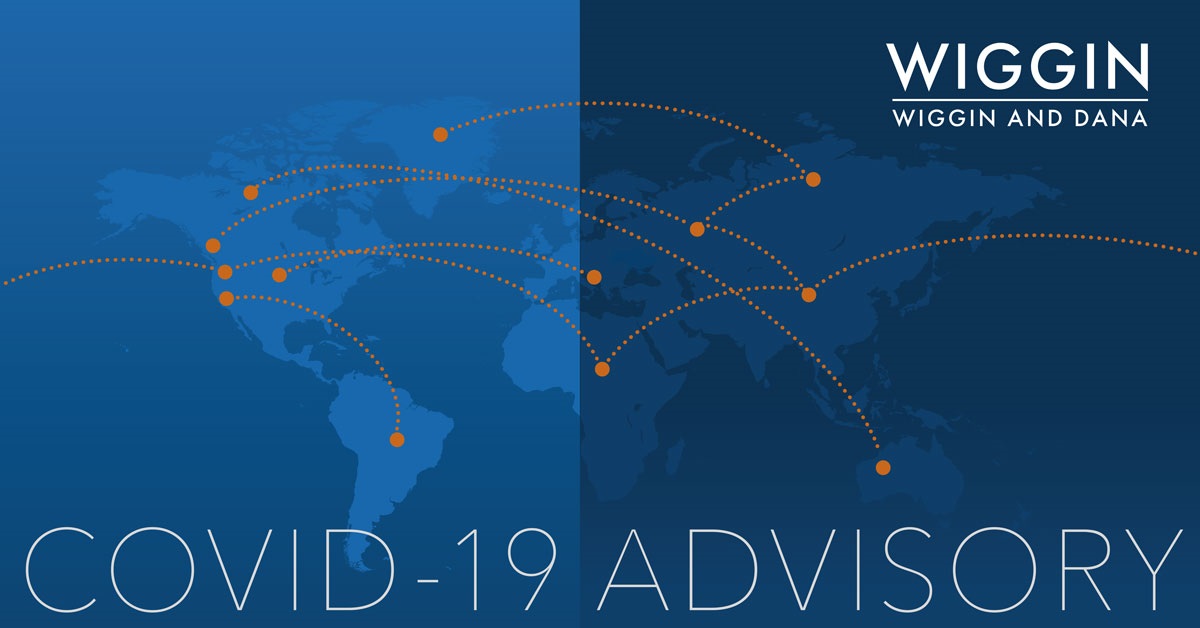COVID-19 Client Resources and Updates

Connecticut Implements New Hospital Billing and Insurance Coverage Financial Protections to Patients During COVID-19 Crisis
On April 5, 2020 Connecticut Governor Ned Lamont issued Executive Order No. 7U, providing certain financial protections to hospital patients during the COVID-19 crisis. Hospitals and insurance carriers should familiarize themselves with these new hospital billing and insurance coverage requirements and take steps to ensure compliance.
The Executive Order provides the following effective immediately and for the duration of the COVID-19 public health and civil preparedness emergency:
- If emergency services are provided to an insured patient by an out-of-network provider and that provider then bills the insurance company directly, the insurance company must reimburse the provider the amount that it would have reimbursed an in-network provider for those same services. Previously, insurance companies had the option to reimburse the provider at the in-network rate, the Medicare rate, or the “usual, customary and reasonable rate” for such services.
- Whereas Connecticut law generally permits insurance carriers and out-of-network providers to agree to a greater reimbursement rate (higher than the in-network rate, the Medicare rate, or the “usual, customary and reasonable rate” for the provider’s services), the statutory section authorizing them to do so is temporarily suspended.
- Connecticut law provides that a hospital rendering health care services to an uninsured patient may not collect from the patient more than the cost of the services provided. However, the Executive Order sets forth an exception: for uninsured patients receiving services for the treatment and management of COVID-19, a hospital may not collect from such patient or such patient’s estate more than the Medicare rate for such services as payment in full. [1]
- Hospitals, health systems and hospital-based facilities are prohibited from collecting facility fees for services provided to uninsured patients for the treatment and management of COVID-19 in any amount higher than the Medicare rate.
- Hospitals are prohibited from billing individuals who are not covered by any public or private health plan for services received for the treatment and management of COVID-19, unless and until clarified by further executive order regarding federal funding that may be made available to cover such services. This provision may significantly impact and postpone hospital billing practices.
- Each hospital, health system or hospital-based facility must maintain fiscal records to identify services provided to uninsured patients for the treatment and management of COVID-19, and must make such records available for claiming federal reimbursement.
[1] “Uninsured patient” is defined as any person who is liable for one or more hospital charges whose income is at or below 250% of the poverty income guidelines, who (a) has applied and been denied eligibility for any medical or health care coverage provided under the Medicaid program due to failure to satisfy income or other eligibility requirements, and (b) is not eligible for coverage for hospital services under the Medicare or CHAMPUS programs, or under any Medicaid or health insurance program of any other nation, state, territory or commonwealth, or under any other governmental or privately sponsored health or accident insurance or benefit program including, but not limited to, workers’ compensation and awards, or settlements or judgments arising from claims, suits or proceedings involving motor vehicle accidents or alleged negligence.
****
Visit Wiggin and Dana’s COVID-19 Resource Center here for additional publications and helpful links on multi-disciplinary topics that are relevant during the current COVID-19 global pandemic.

